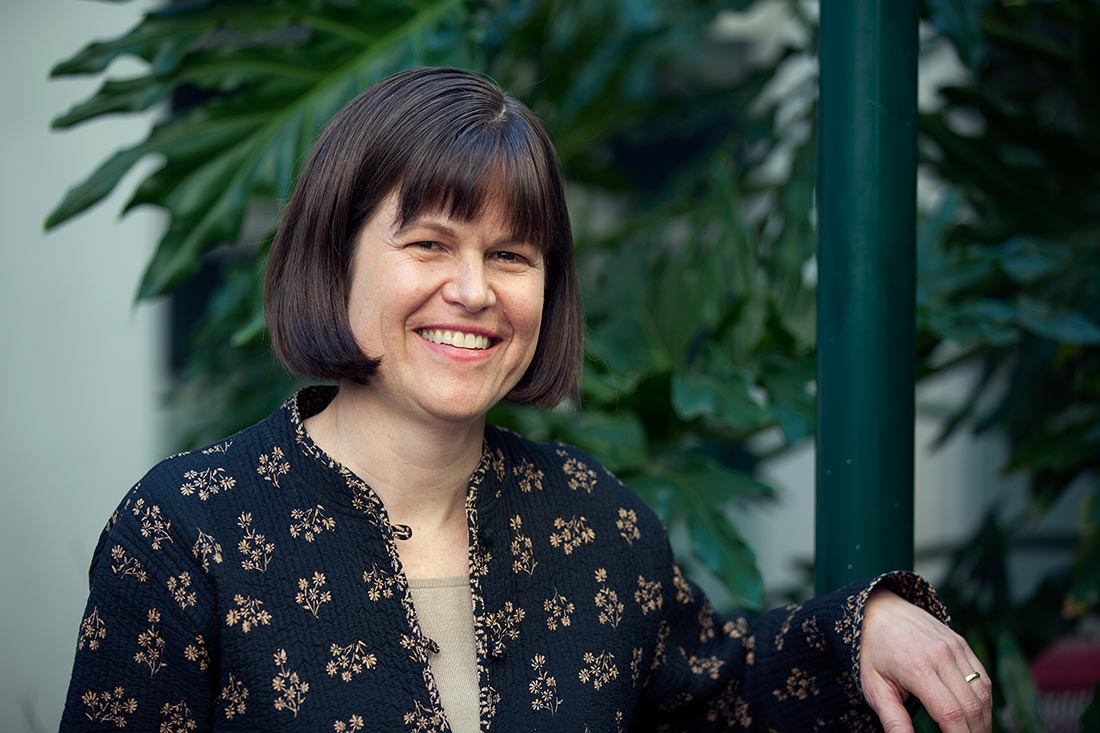Real graduate
'I chose QUT for a number of reasons. As well as being an internationally recognised university, it provided a really flexible setting. I studied full-time from London and part-time from Bangladesh and Melbourne.'
Postgraduate courses in public health
Give your career a booster shot with our flexible graduate diploma or masters degree in public health. Our courses are designed and delivered by experienced professionals who offer students insights into the industry.
Real graduate
'I chose QUT for a number of reasons. As well as being an internationally recognised university, it provided a really flexible setting. I studied full-time from London and part-time from Bangladesh and Melbourne.'
Postgraduate courses in public health
Give your career a booster shot with our flexible graduate diploma or masters degree in public health. Our courses are designed and delivered by experienced professionals who offer students insights into the industry.




Highlights
- Ideal for career change, professional advancement, and clinicians looking to expand their skills.
- Graduate to a career in food safety, disease control, prevention programs, health promotion and environmental health.
- Specialise in emergency and disaster management, health promotion, health services management, epidemiology and research methods, or health, safety and environment
- Opportunity to progress to the Master of Public Health.
- Flexible study options - on campus or externally.
Highlights
- Ideal for career change, professional advancement, and clinicians looking to expand their skills.
- Graduate to a career in food safety, disease control, prevention programs, health promotion and environmental health.
- Specialise in emergency and disaster management, health promotion, health services management, epidemiology and research methods, or health, safety and environment
- Opportunity to progress to the Master of Public Health.
Explore this course
Public health professionals promote population health and wellbeing in service areas such as food safety, disease control, prevention programs, health promotion and environmental health.
QUT's public health programs are designed for professionals interested in a career in public health, mid-career professionals seeking advancement and clinicians looking to broaden their range of expertise.
Students obtain core skills in epidemiology and biostatistics and an understanding of contemporary and challenging population health issues. You may choose to complete specialist study in emergency and disaster management; epidemiology and research methods; health promotion; health services management; health, safety and environment; or select units from more than one study area.
Careers and outcomes
Health promotion is focused on developing policy, programs and strategies that will foster and encourage healthy, equitable and sustainable environments and communities. To achieve this, a health promotion practitioner is required to work with a diverse range of individuals, community groups and representatives. In addition to developing population and community programs, interventions can also be implemented in specific settings such as schools, workplaces, and hospitals.
Currently, a key focus is the development of effective programs that address a number of national and state health priority areas including physical activity, alcohol, tobacco and other drugs, mental health promotion, injury prevention and skin cancer prevention. An integral component to being an effective health promotion practitioner is to be involved in the facilitation and development of effective partnerships with government and non-government agencies to collaboratively address health issues and work towards positive health outcomes.
Some of the tasks a health promotion practitioner may perform include:
- planning, implementing and evaluating health promotion programs
- informing and working collaboratively with other health professionals on population health issues
- designing, developing and implementing public information campaigns using radio, television, newspapers, pamphlets, posters and websites.
With experience, health promotion practitioners can progress into supervisory and managerial positions.
Graduates may find employment in the public sector in local, state and federal government health departments or local community agencies such as community health, and primary health care. Organisations like the National Heart Foundation, Diabetes Australia, and The Cancer Council provide employment opportunities.
Health promotion and public health positions are also available in a variety of professional workplaces including the police force, local councils and in private industry (e.g. medical insurance companies, corporate health companies, and health promotion consultants).
For those interested in social welfare, graduates have been employed by government departments and international health aid organisations such as World Health Organisation and the Australian Agency for International Development and Community Aid Abroad. Universities, professional associations and international agencies (e.g. World Vision, Greenpeace, United Nations) also require the skills of public health specialists.
Course articulation
The Graduate Diploma in Public Health fully articulates into the Master of Public Health.
Possible careers
- Community health officer
- Health promotion officer
- Policy officer
- Project manager
- Public health officer
The Graduate Diploma consists of eight units. Students complete four core units plus four advanced elective units which may be taken from a specialist study area.
Study areas
Specialised study areas are available in the areas of:
- Disaster and Emergency Response
- Epidemiology and Research Methods*
- Health Promotion
There is also the option of completing a cross specialisation instead of a major enabling you to choose units from more than one study area (major).
* Some units are available only in internal mode.
The Graduate Diploma consists of eight units. Students complete four core units plus four advanced elective units which may be taken from a specialist study area.
Study areas
Specialised study areas are available in the areas of:
- Disaster and Emergency Response
- Epidemiology and Research Methods*
- Health Promotion
There is also the option of completing a cross specialisation instead of a major enabling you to choose units from more than one study area (major).
* Some units are available only in internal mode.
- Course code
- PU60
- CRICOS code
- 020306E
-
- Kelvin Grove
-
- Kelvin Grove
- 1 years full-time
- 2 years part-time
- 1 years full-time
- February and July
- February and July
Entry requirement
You must have a recognised bachelor degree (or higher qualification) in any discipline.
Minimum academic requirements
Entry requirement
You must have a recognised bachelor degree (or higher qualification) in any discipline.
Minimum English language requirements
Select the country where you completed your studies to see a guide on meeting QUT’s English language requirements.
Your scores and prior qualifications in English-speaking countries are considered. Approved English-speaking countries are Australia, Canada, England, Ireland, New Zealand, Scotland, United States of America and Wales.
If your country or qualification is not listed, you can still apply for this course and we will assess your eligibility.
We accept English language proficiency scores from the following tests undertaken in a secure test centre. Tests must be taken no more than 2 years prior to the QUT course commencement.
| English Test | Overall | Listening | Reading | Writing | Speaking |
|---|---|---|---|---|---|
| IELTS Academic / One Skill Retake | 6.5 | 6 | 6 | 6 | 6 |
|
Cambridge English Score
You must share your results with QUT through the Candidate Results Online website. |
176 | 169 | 169 | 169 | 169 |
| PTE Academic | 58 | 50 | 50 | 50 | 50 |
| TOEFL iBT | 79 | 16 | 16 | 21 | 18 |
Don't have the English language score you need? We can help!
We offer English language programs to improve your English and help you gain entry to this course.
When you apply for this course, we will recommend which English course you should enrol in.
Your actual fees may vary depending on which units you choose. We review fees annually, and they may be subject to increases.
2026 fees
2026: Fee available from July
2026 fees
2026: Fee available from July
2025 fees
2025: $26,200 per year full-time (96 credit points)
2025 fees
2025: $37,600 per year full-time (96 credit points)
Student services and amenities fees
You may need to pay student services and amenities (SA) fees as part of your course costs.
FEE-HELP: loans to help you pay for your course fees
You may not have to pay anything upfront if you're eligible for a FEE-HELP loan.
You can apply for scholarships to help you with study and living costs.
Equity scholarships scheme
A scholarship for low-income students studying in any faculty.
- Scholarship eligibility
- Struggling financially
Keep up to date
QUT courses for you
Like to save your courses?
Please enter your first name and email so we can save your courses for you